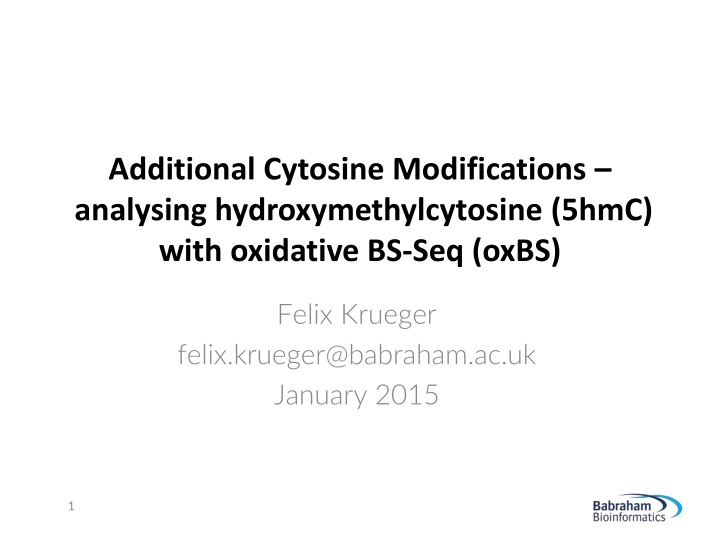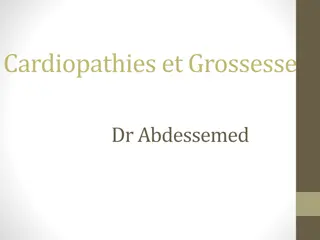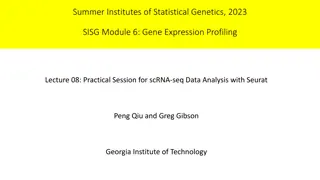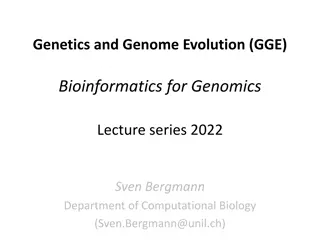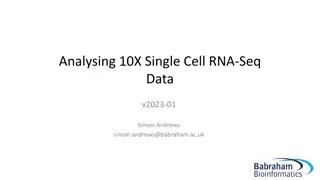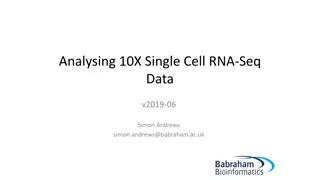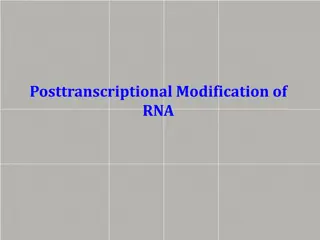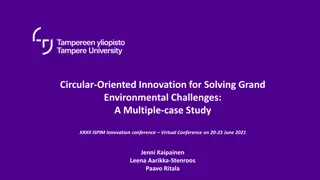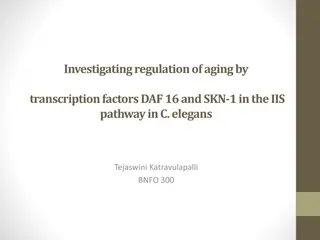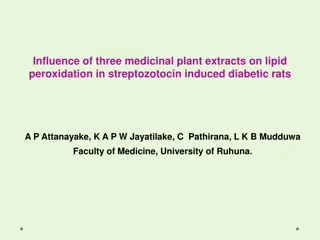Investigating Hydroxymethylcytosine Modifications with Oxidative BS-Seq
Analyzing cytosine modifications, particularly hydroxymethylcytosine (5hmC), using oxidative Bisulfite-Seq (oxBS) provides insight into epigenetic regulation. Research by Felix Krueger and others explores the detection of 5-hydroxymethylcytosine and 5-formylcytosine at single-base resolution. Strategies like identifying target regions and comparing genome-wide differences between 5hmC and 5mC levels offer valuable tools for understanding epigenetic changes.
Download Presentation

Please find below an Image/Link to download the presentation.
The content on the website is provided AS IS for your information and personal use only. It may not be sold, licensed, or shared on other websites without obtaining consent from the author.If you encounter any issues during the download, it is possible that the publisher has removed the file from their server.
You are allowed to download the files provided on this website for personal or commercial use, subject to the condition that they are used lawfully. All files are the property of their respective owners.
The content on the website is provided AS IS for your information and personal use only. It may not be sold, licensed, or shared on other websites without obtaining consent from the author.
E N D
Presentation Transcript
Additional Cytosine Modifications analysing hydroxymethylcytosine (5hmC) with oxidative BS-Seq (oxBS) Felix Krueger felix.krueger@babraham.ac.uk January 2015 1
Cytosine modifications Miguel R. Branco, Gabriella Ficz & Wolf Reik Nature Reviews Genetics 13,7-13(January 2012) 2
Detecting 5-hydroxymethylcytosine using Oxidative Bisulfite-Seq (oxBS) Quantitative sequencing of 5-methylcytosine and 5-hydroxymethylcytosine at single-base resolution Science, 2012 May 18;336(6083):934-7 3
Detecting 5-formylcytosine using Reduced Bisulfite-Seq (redBS) M.J. BOOTH, NATURE CHEMISTRY Quantitative sequencing of 5-formylcytosine in DNA at single-base resolution 4
oxBS: identifying target regions Gives an idea about false positive rate Analysis options to gain more power: - larger running windows - looking for sets/functional sets 6
hmC as difference BS oxBS genome-wide difference: sometimes negative values relative differences 7
